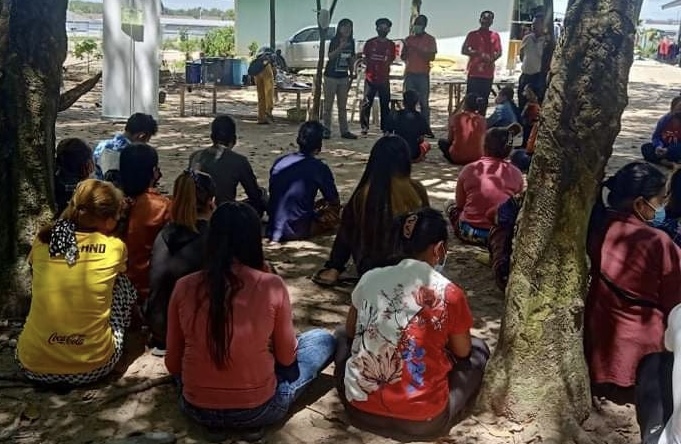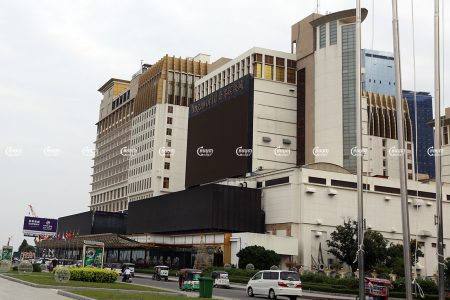During the four days he spent adrift on a buoy after escaping violent coworkers on a Malaysian fishing boat, Pei Poeun said he had little hope of survival.
“I never thought I would survive,” Poeun said. “My life would end because even [if I] shouted no one would hear me, and I couldn’t swim ashore.”
The 40-year-old, who was rescued by Malaysian authorities in June and repatriated to Cambodia last month, told CamboJA that he left Prey Veng last July hoping to earn a better income through an undocumented fishing job. He got the job through a broker, who smuggled him into Thailand through the forest and then onto Malaysia.
While a number of Cambodian migrants have been trafficked into slave-like conditions on fishing boats, Poeun said his job was a genuine one. He was paid an average of $723 a month, and faced no abuse from his boss.
Instead, he said, he jumped ship after his co-workers attempted to hurt him. For days, he said, he overheard his coworkers talk about beating him up or tying him down. He tried to avoid them, but eventually it came to a head.
“That day, I was holding the boat wheel, they [came toward me] to try to kill me, but I knew their aim and pretended to have a stomach ache and walked away,” he said.
“Later, they were still staring at me, and they were holding something [to attack me with], so I looked at the situation as it is difficult to live on the boat, I decided to jump off,” he said.
Poeun said he had no idea why the men wanted to kill him, but after he jumped and they didn’t turn the boat around or try to rescue him, his fears were confirmed.
“They knew and saw I jumped off the boat, but they didn’t turn the boat back to take me,” he said. “If they didn’t want to kill me, they wouldn’t just watch and keep going.”
Foreign Affairs Ministry issued a statement last month, saying the Cambodian embassy in Malaysia collaborated with the Malaysian maritime police, after they rescued the fisherman off the coast of Perak state.
After landing in Cambodia, Poeun was brought to a quarantine center in Kandal province, and went to temporarily stay an an NGO in Kandal after his release on August 29.
Undocumented migration has long been a challenge for the two countries, but the issue has taken on heightened importance amid the pandemic. As Cambodia and Thailand struggle to keep the coronavirus in check, migrant workers say they have little choice but to cross the border — whether or not it remains closed.
Poeun’s mother, Leang Yim, 59, told CamboJA that she was very happy after learning that her son was rescued in Malaysia.
“I had just heard he jumped off the boat, but I don’t know other things because he has never told me much about his issue,” she said. She noted that her son often called home from the fishing boat, but never complained about hardships and used to send home about $300 a month.
Of her three sons and one daughter, she said, only one lives at home and the rest have been working in Thailand and Malaysia.
“My daughter got married and has gone to work in Thailand with her husband,” Yim said, adding that her daughter is deeply concerned over the spread of COVID-19.
Poeun’s brother, Pei Toeu, 32, returned from Thailand in April, where he too worked on a fishing boat. He said he got the job as it was impossible to find decent-paying work in Cambodia.
“I can earn between 13,000 to 15,000 baht [$400 to $460],” he said.
“Yes, it is hard work as a fisherman, working at nighttime, but we can take a half day off and sometimes if we aren’t busy, we can take a longer rest,” he said.
In January, the U.S Trafficking in Person report said that undocumented Cambodian migrants working in Thailand—who constituted an estimated 30-40 percent of the 1.5 to two million Cambodians there before the pandemic—are at high risk of trafficking due to their immigration status.
“Traffickers continue to recruit significant numbers of Cambodian men and boys in Thailand to work on fishing boats and exploit them in forced labor on Thai-owned and -operated vessels in international waters,” the report said.
De Thehoya, a program officer at labor rights group CENTRAL, said his group has seen countless exploited fishermen.
“Our experiences that we have had with [rescued] fishmen is they worked up to 19 or 20 hours a day sometimes every day of the week because there was no system to protect them,” he said.
“Owners of fishing boat have used undocumented workers [because] it is an easy to exploit labor force, and they have used [the labor] like a slavery,” he said.
Brokers serve as middlemen, luring Cambodians with promises of well-paying jobs and vows to cover the costs of all travel and paperwork.
Thehoya called on the government and relevant authorities to strengthen measures both domestically, to crack down on the illegal broker system, and internationally, to cooperate with neighboring countries to better monitor work conditions on boats.
Chou Bun Eng, vice chairperson of the National Committee for Counter Trafficking, could not be reached for comment, nor could Foreing Ministry spokesman Koy Kuong.
As for Poeun, though he escaped the worst of the exploitation many fishermen face, he said his experience show him what a risk undocumented migration posed.
“I have now sworn I am not going to work [on an illegal fishing boat] in Malaysia,”


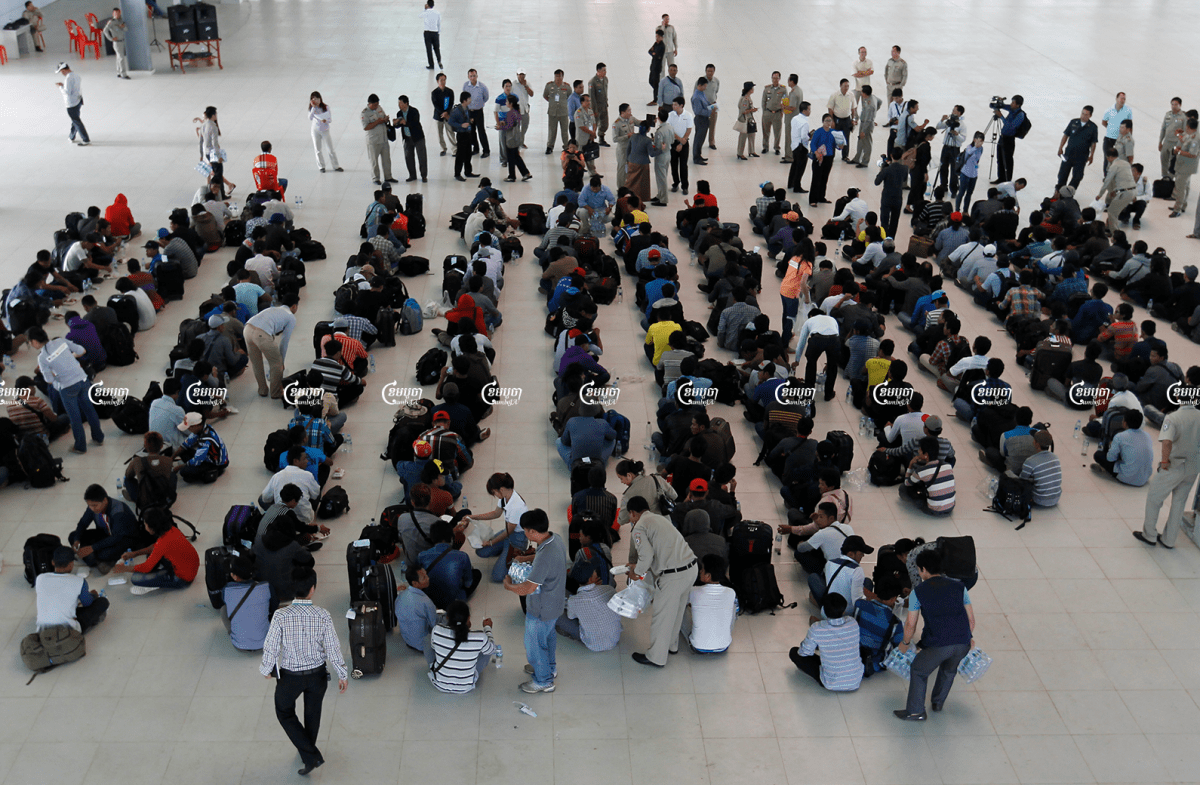
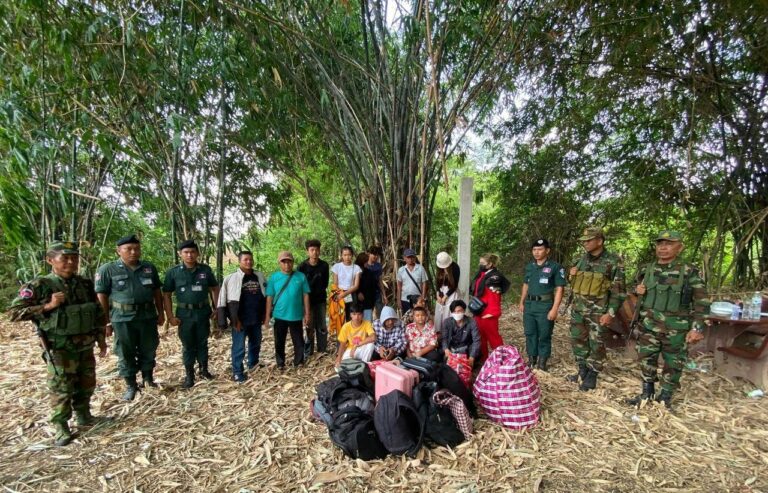
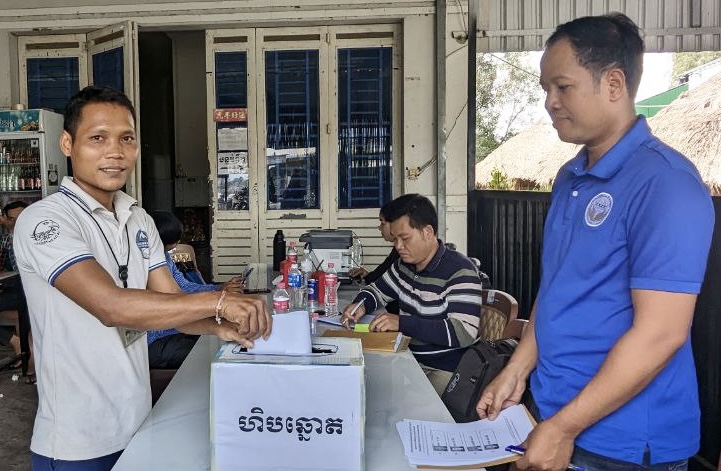
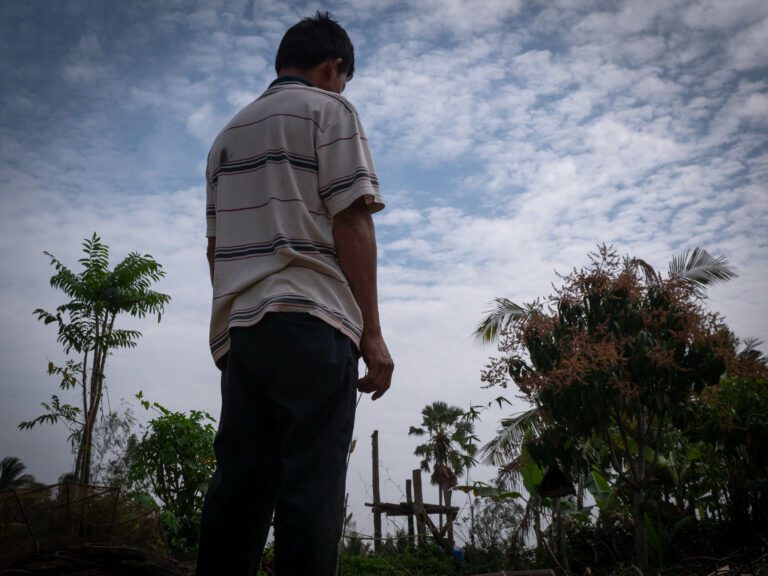
![Moeun Tola [right], executive director of CENTRAL, speaks during a press conference about the NagaWorld strike, August 29, 2022. CamboJA/ Uon Chhin](https://cambojanews.com/wp-content/uploads/2022/12/2022-12-01-16.34.05-768x482.jpg)
